SMOKE – Miniseries (2025)
A detective and an arson investigator work together to stop two serial arsonists in the Pacific Northwest.
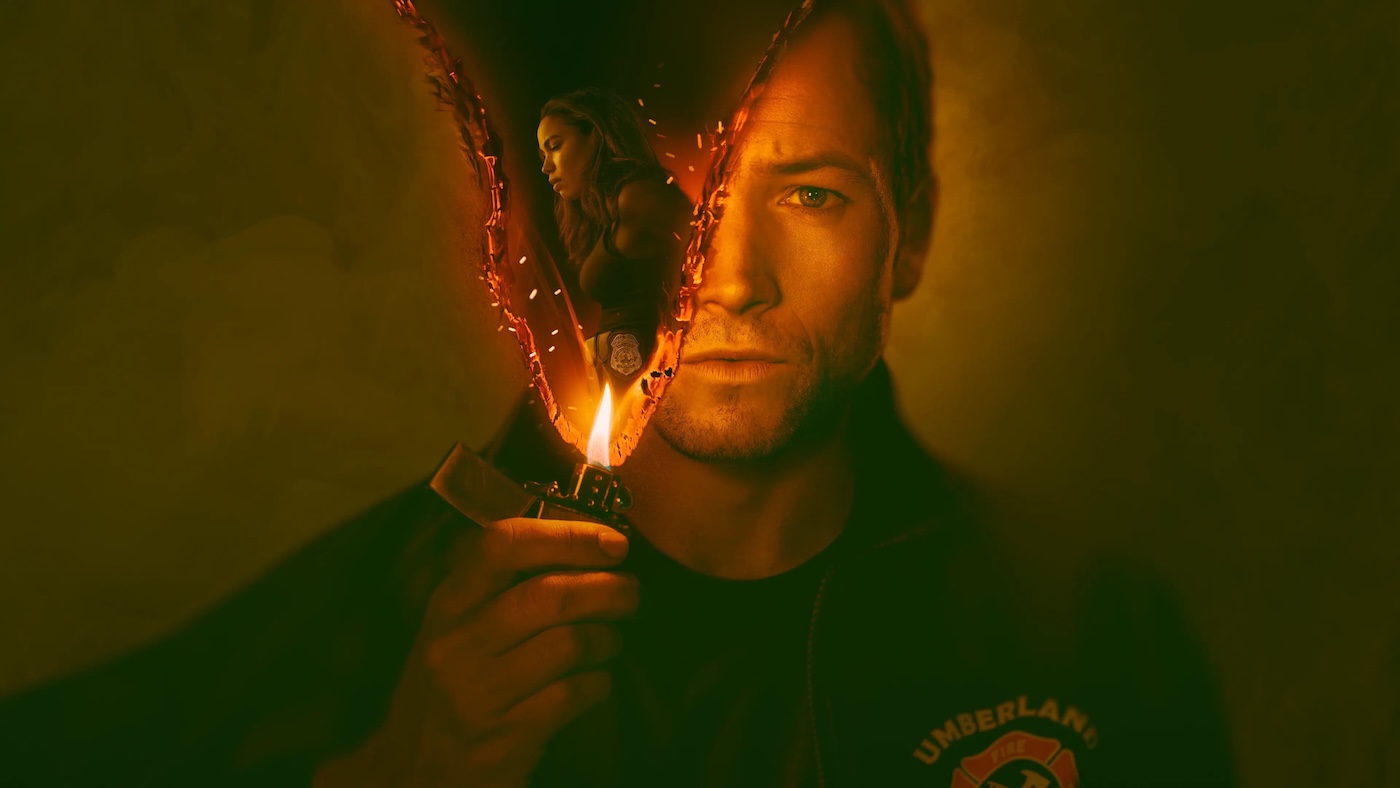
A detective and an arson investigator work together to stop two serial arsonists in the Pacific Northwest.

In the fictional town of Umberland, an arson investigator and a detective join forces to solve a wave of arson cases, determined to drag the culprits’ identities out of the smoke. Created by novelist Dennis Lehane—known for co-writing The Wire (2002-08)—the series promises more than your average whodunit. However, while firmly grounded in police procedural, it crosses into murkier territories, exploring moral ambiguity and psychological complexity. Ultimately, it offers a compelling study of its characters’ darkest impulses.
The series is loosely based on the Firebug (2021) podcast, which chronicled the case of John Leonard Orr—a respected Southern California fire captain later revealed to be a serial arsonist. Lehane initially nods to this true story before steering the narrative firmly into fiction. Opening with the dictionary definition of “creativity” as its epitaph, things quickly turn ironic, as the antagonists twist this concept to rationalise their sinister pleasure to burn—“bringing something into existence; producing through imaginative skill.” A chilling inversion, Smoke isn’t just about arson; it’s about powerless individuals who choose destruction as a substitute for agency. While the early episodes struggle to find their rhythm, the season gradually builds momentum, rewarding patience. That said, Smoke relies more on strong performances and complex character work.
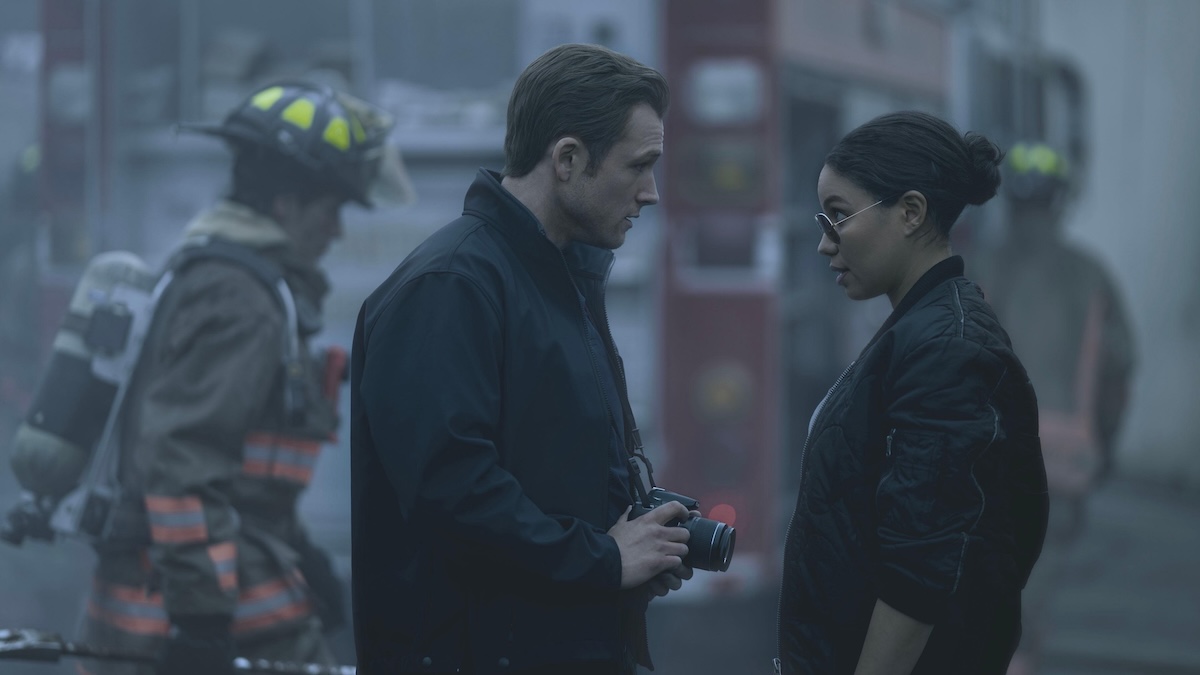
One of the arsonists, whose identity remains hidden until Episode 2, “Your Happy Makes Me Sad”, sets a supermarket ablaze by igniting a bag of potato crisps. The other, Freddy Fasano (Ntare Guma Mbaho Mwine), is introduced early as a fry cook whose choice of destruction is petrol. Freddy lives a hollow, joyless existence of isolation, compulsive behaviours, and a disturbing obsession with fire. The series offers him no redemption but provides a cinematic framework in which he emerges as a bleak portrait of male incompetence, deeply alienated from society and emotionally undeveloped. He’s definitely no Byronic antihero.
Many of Freddy’s scenes require skilled cinematography, good acting, and a haunting musical score to create texture. In these moments, the series finds its visual and emotional groove. There’s no doubt about it: Ntare Guma Mbaho Mwine’s portrayal of Freddy is haunting and deeply unsettling. His vacant stare and slightly parted mouth, often accompanied by slow, brooding music in the background, evoke a man utterly hollowed out by isolation and obsession. In Episode 1, we meet him behind the counter at Coop’s Fried Chicken, surrounded by pots of boiling oil—materials that, in Freddy’s world, can be used for violence as well as cooking. Sometimes when he’s offended by colleagues or customers, sparks float above his head. Like an invisible light bulb, they give him permission to fantasise about burning people. Once he acts on these fantasies, we lose sympathy for him, yet this may be the point.
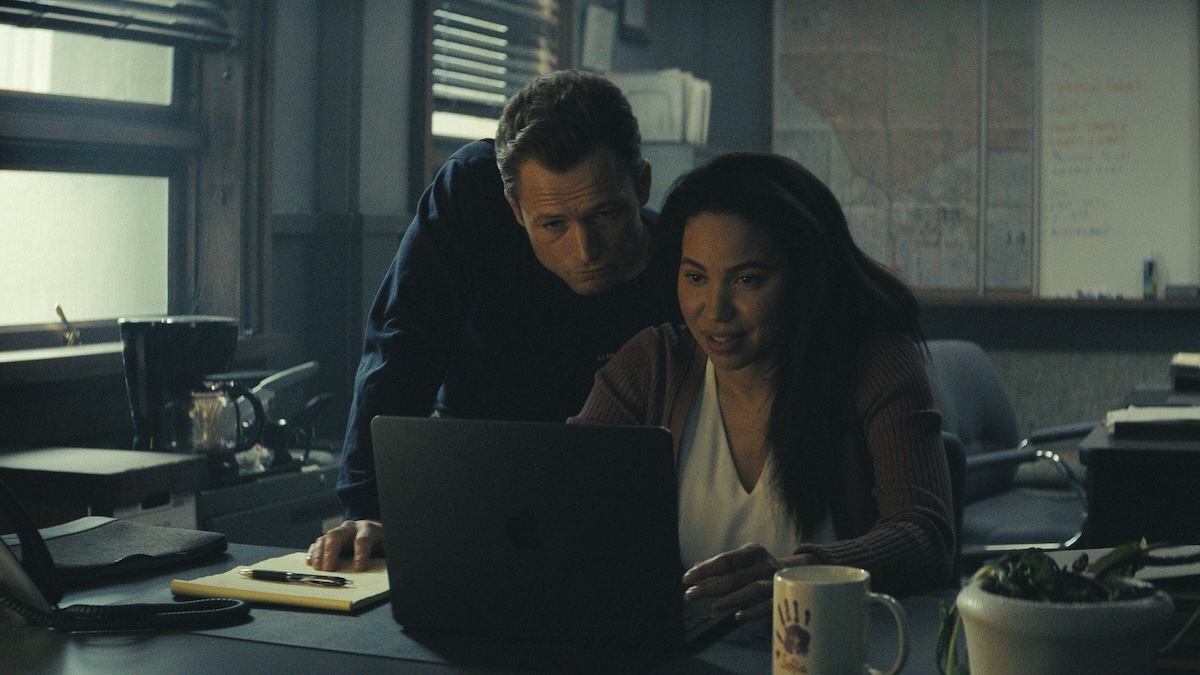
In one harrowing scene, Freddy stands in the dark, watching the home of a couple who had offended him by minding their own business. After Freddy sets the house ablaze, wounding the people inside, glowing red sparks fly down to Earth, and he raises his hands to catch them with the glee of a child witnessing the first snowflakes of a quiet snowfall. It’s a chilling snapshot of a man who finds awe in destruction.
Here, as in many scenes, cinematographers Sam McCurdy, François Dagenais, and Todd McMullen create a contrast between beauty and horror that’s entirely psychological. Something that runs through the series and hits us the most at the climax of the finale. And the shots of fire burning the interiors of houses throughout the series, such as in the opening of Episode 1, are hypnotic with their subtle candle-like colours, bringing to the screen the arsonists’ inner worldview.
Dave Gudson (Taron Egerton) is a former firefighter turned arson investigator and aspiring novelist, drawing inspiration from the fires he once fought. Egerton, best known for his roles in Rocketman (2019) and Black Bird (2022), sheds his signature Welsh charm for an unsettling performance. With exaggerated optimism and a voice softened into a shy, weak American accent, Dave comes across as both awkward and oddly self-assured. He even shifts between personas with the help of a pair of glasses—investigator by day, aspiring writer by night—which may not have lenses. But what Egerton can’t hide, and isn’t meant to, are Dave’s wild eyes and the sinister curve of his smile. Beneath the veneer, his character is hiding a darker past, and while the twist of his arc is predictable, the patient viewer will be rewarded.
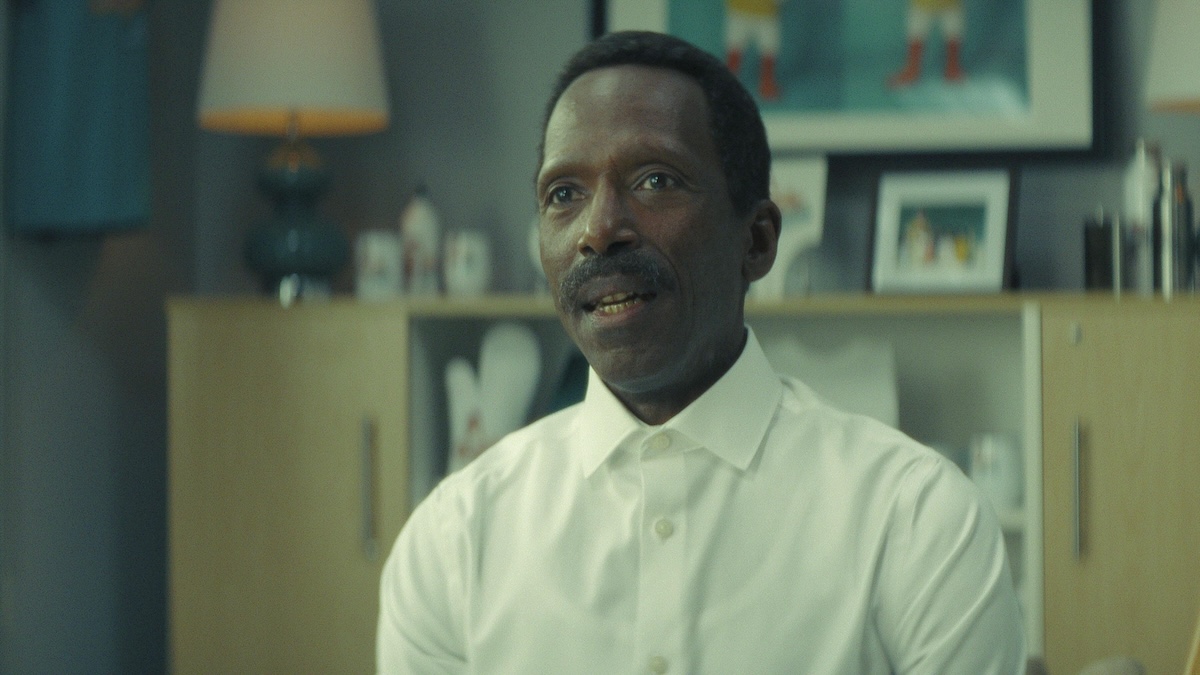
Michelle Calderone (Jurnee Smollett) is a detective recently reassigned to the arson unit ostensibly for her investigative skills, but in truth, her transfer is a consequence of an affair with her superior, Captain Steven Burke (Rafe Spall). True to Dennis Lehane’s characters, Michelle is a tough, blue-collar, world-weary woman navigating corruption. Although her backstory with family and fire feels thrown in, Smollett brings enough conviction to the role.
We first meet Michelle demolishing a wall in her own home with a sledgehammer—symbolic but thematically fitting. Throughout the miniseries, Michelle’s at her best when she’s interfering, whether breaking up her lover’s marriage (only to reject him afterwards) or getting between the arsonists and their sinister plans to light up the world. However, as the series progresses, Michelle’s moral contradictions grow harder to ignore. Her personal decisions, especially regarding her romantic relationships, strain believability and weaken her role as a stable moral anchor. The question is whether she’s still the heroine we need by the end of the series.
Together, Egerton and Smollett share a compelling chemistry that anchors the series. This is never truer than in Episode 4, “Strawberry”, during a late-night drink in a darkened office. What begins as a friendly exchange quickly shifts into an ambiguous conversation about intimacy and loneliness. When Michelle discusses her romantic history, Dave relates a little too closely to the “losers” of her past whom she dismisses, revealing his own childhood scars and fractured masculinity. Egerton delivers his lines with a disturbing grin; Smollett responds with a stiff giggle that masks her discomfort. This kind of acting is a highlight of the series, moments in which psychological tension feels spontaneous but revealing. However, not everything holds through to the finale, as Michelle’s arc veers in a direction that may leave viewers puzzled by her choices. Nevertheless, the point comes through: criminals have a distorted view of themselves to justify their violent actions.
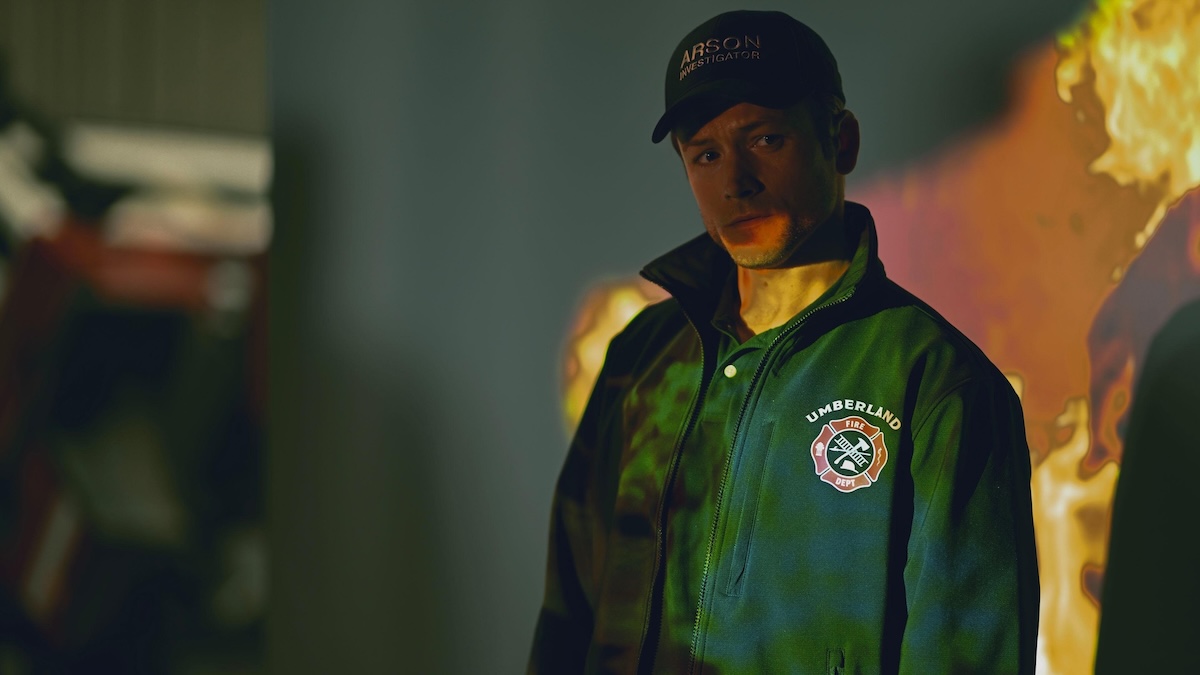
Despite its deliberate pacing, the series excels at building tension, keeping viewers on edge with each episode. While we’re quietly witnessing the arsonists rationalise their crimes, the true suspense lies not just in who the arsonists are, but how—and if—they’ll be caught. Smoke is also just as concerned with the psychological terrain of victimhood and villainy. It presents a moral tug-of-war that resists neat explanations, portraying characters who justify their crimes internally long before confronting any external judgment. This is classic Lehane, reminiscent of The Wire and Shutter Island (2010), where characters are confused about good and evil.
The supporting cast forms a talented ensemble—arguably one of the series’ quiet strengths. We’re treated to Greg Kinnear as Dave’s superior, Harvey Englehart, whose schtick of shifting from reluctant authority figure to impassioned, mordant critic comes in handy for the more dramatic scenes. John Leguizamo as Ezra Esposito—Dave’s former partner—provides real weight during the investigation, as his character ardently fights his superiors so he can take down the man he wholeheartedly believes is responsible. And Rafe Spall as Captain Steven Burke—who Michelle had an affair with and then rejected—helps broaden one of the major thematic explorations about masculinity and impotence with his intensity.
These characters seem to be moral in the legal sense, yet they’ve got their foibles, but at least they didn’t set fires or murder anyone (that we know of). Unfortunately, we follow them on a singular mission in only the later episodes, and it’s short-lived, so we don’t have that much time to fully appreciate a combined effort with incredible dramatic acting. However, when the plan derails, mainly before the finale, it becomes less about seeking justice and more about revenge that seems representative of broader social issues.
Nevertheless, Smoke stands out not for its slow-burn pacing but for its psychological complexity, perfected by strong performances from an ensemble cast, good writing, and extraordinary cinematography. With any hope, visually striking portrayals of fire as both objective destruction and personal desire may take this series into multiple seasons.
USA | 2025 | 9 EPISODES | 2.35:1 | COLOUR | ENGLISH

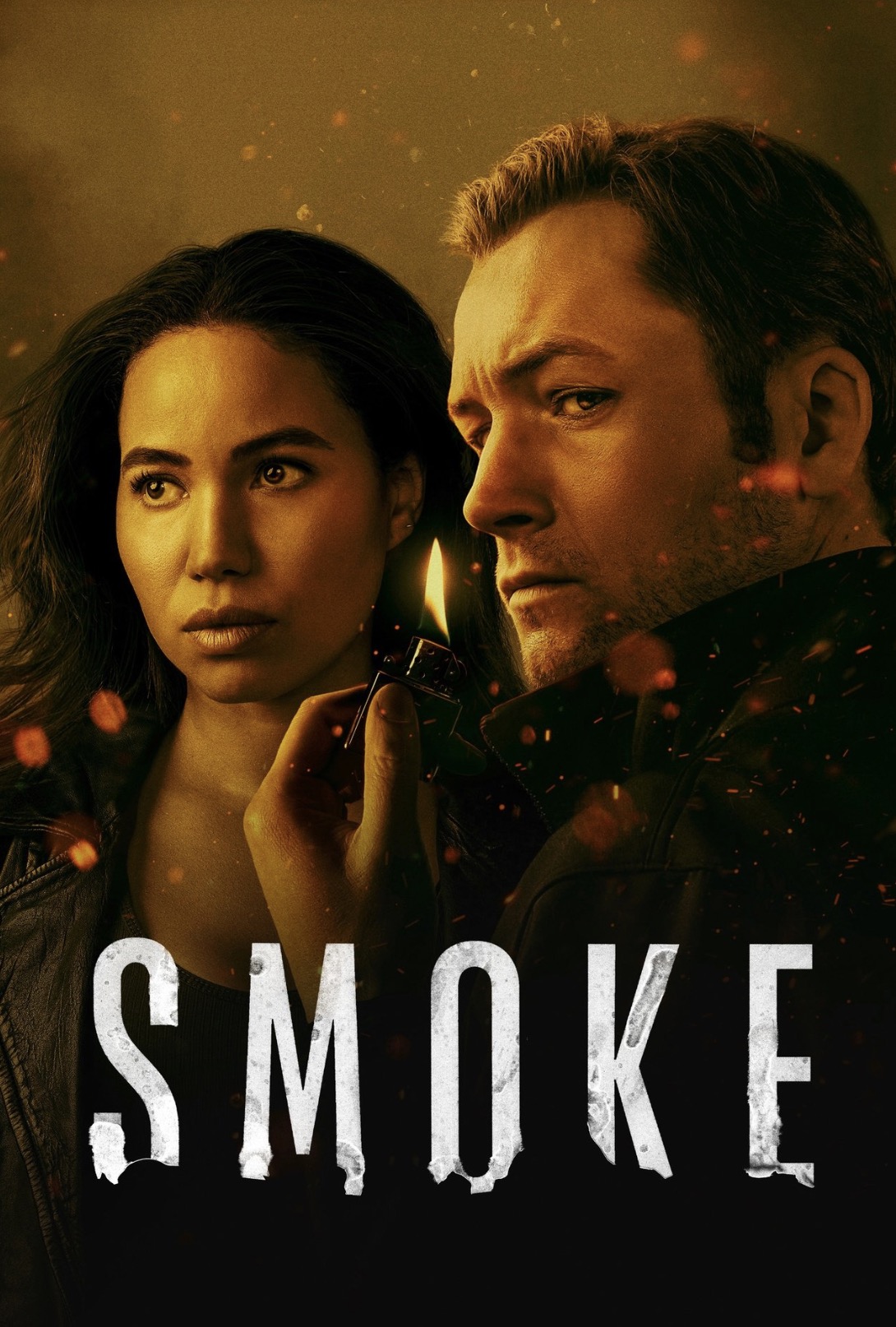
writers: Dennis Lehane, Adriane McCray, Molly Miller, Kary Antholis, Steven Hanna & Steve Harris.
directors: Kari Skogland, Joe Chappelle & Jim McKay.
starring: Taron Egerton, Jurnee Smollett, Rafe Spall, Ntare Guma Mbaho Mwine, Hannah Emily Anderson, Greg Kinnear & John Leguizamo.
